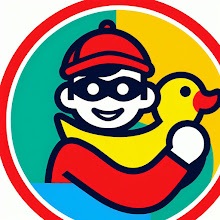Three years ago, on April 1st, 2010, W. Dembski's and R. Marks's paper
The Search for a Search[1] was accepted for publication. Recently, W. Dembski referred to it as a
seminal paper in his article
Before They've Even Seen Stephen Meyer's New Book, Darwinists Waste No Time in Criticizing Darwin's Doubt at the
Discovery Institute's
Evolution News and Views.. The first result of their paper is the
Horizontal No Free Lunch Theorem which shows that average relative performance of [assisted] searches never exceeds unassisted or blind searches. Hopefully this paper is covered at the
2013 Summer Seminar on Intelligent Design In the natural sciences from July 12-20, 2013 in Seattle, WA - at least in the past, Marks and Dembski have been speakers at this seminar. Wouldn't it be a nice warm-up exercise for all these bright students gathered in Seattle to work out an example of an assisted search and see for themselves how the
Horizontal No Free Lunch theorem works? I just ask because I haven't seen any such example calculated by Marks, Dembski or one of their students. They have mentioned a few kinds of assisted searches - like Dawkins's weasel, the Easter Egg hunt, etc., but they have never shown how those fit their model.
So I tried to work out a kind of simplified Easter Egg hunt in the language of Dembski and Marks - and I invite everyone to try to elaborate similar examples. My claim: any search which uses a kind of feedback (an oracle, a fitness function, etc.) cannot be described meaningfully in the terms of Marks and Dembski - which cast a doubt on their far-reaching conclusions about assisted searches in general. But see for yourself:
